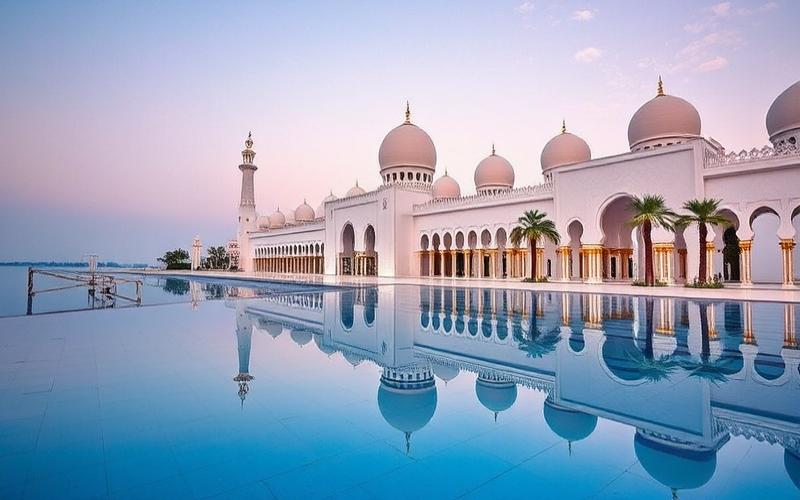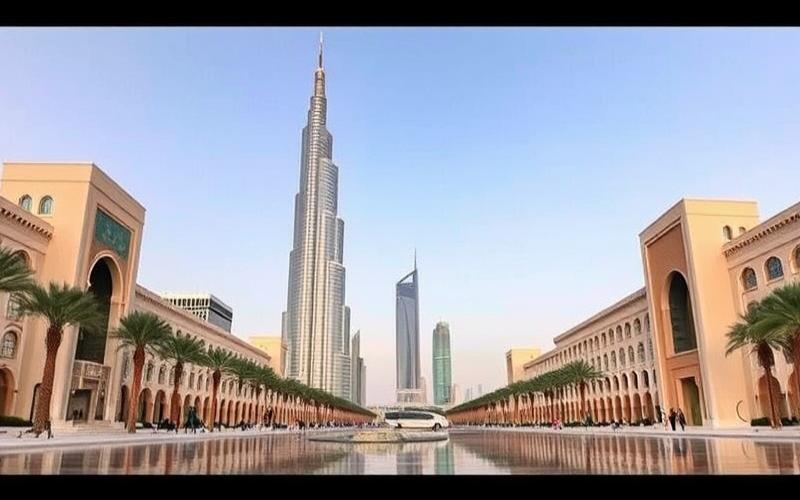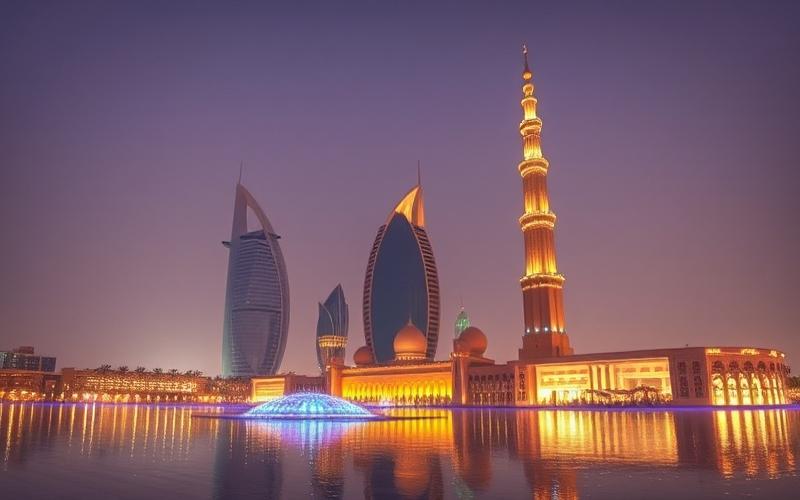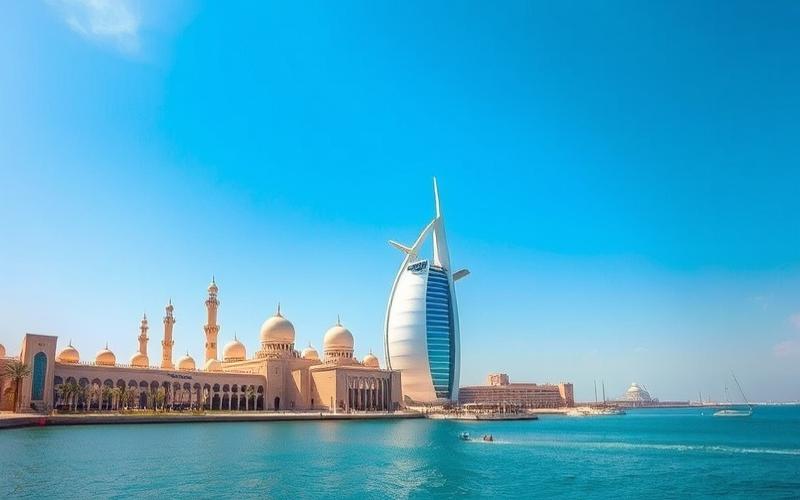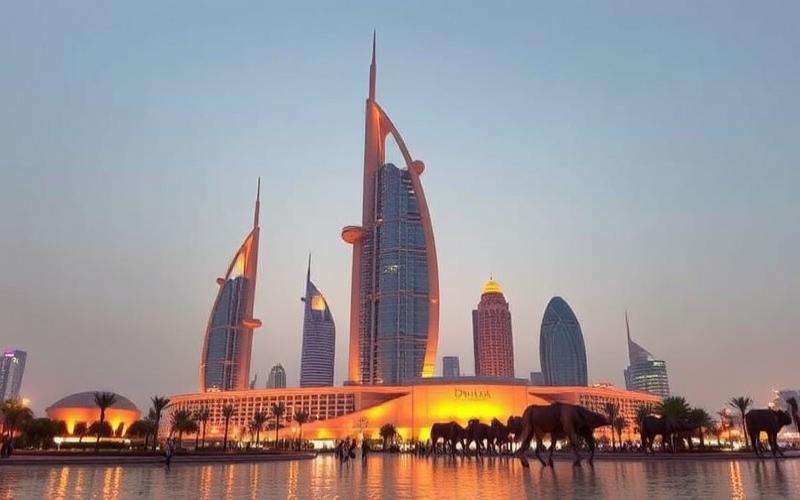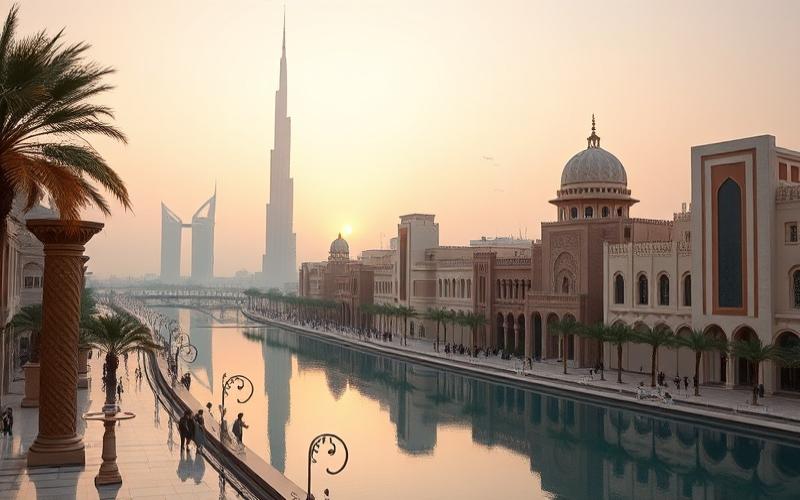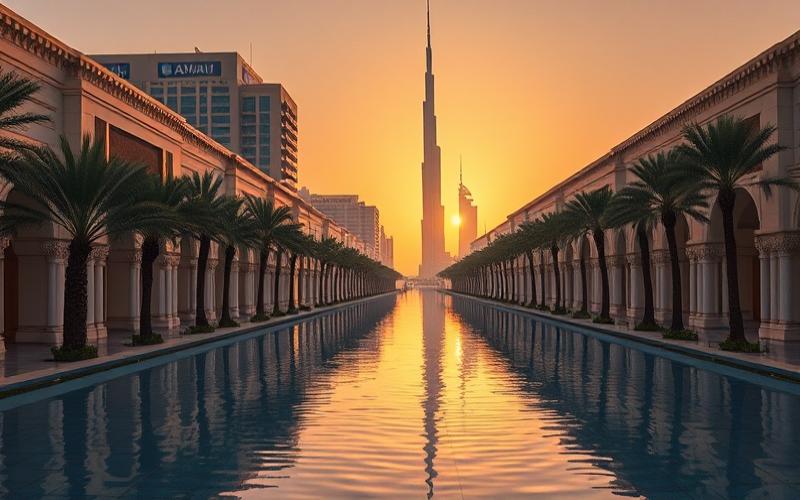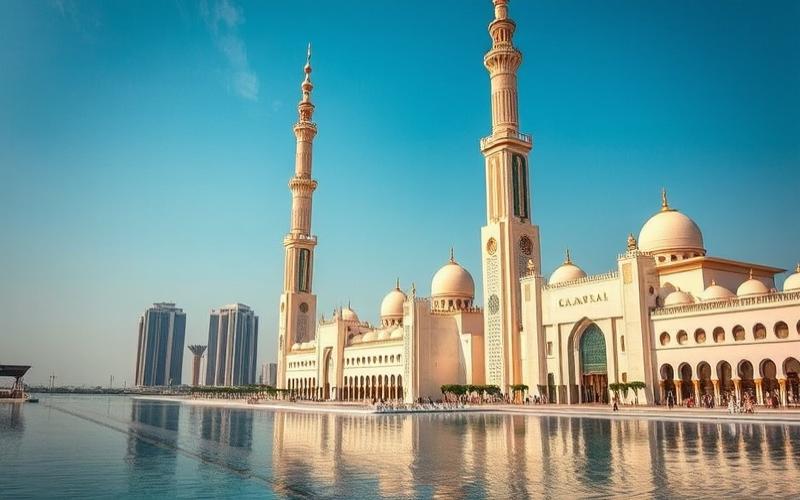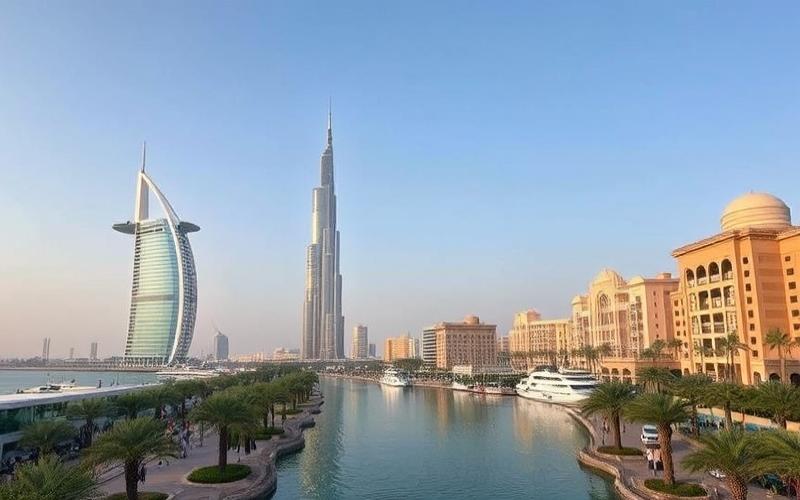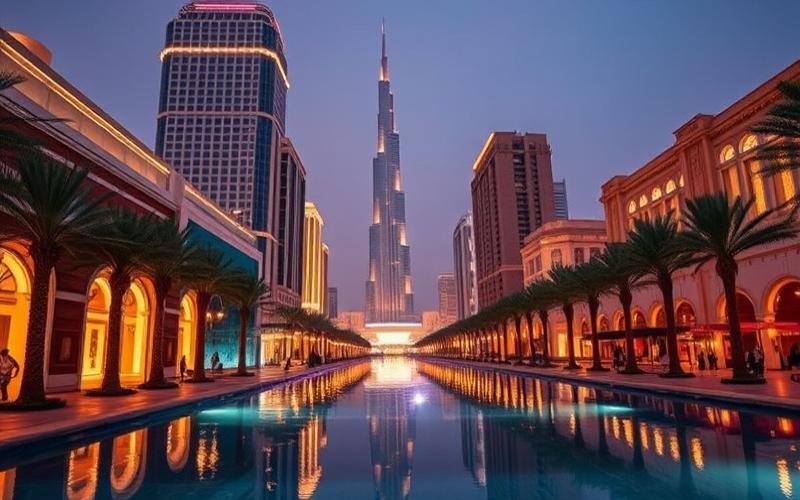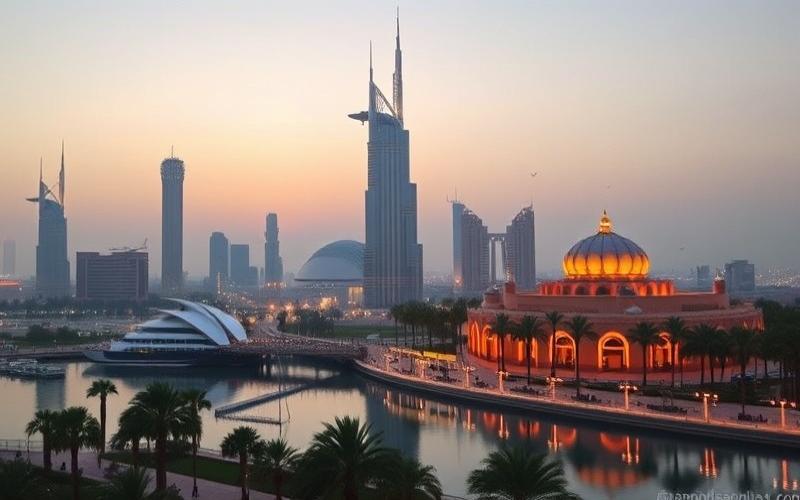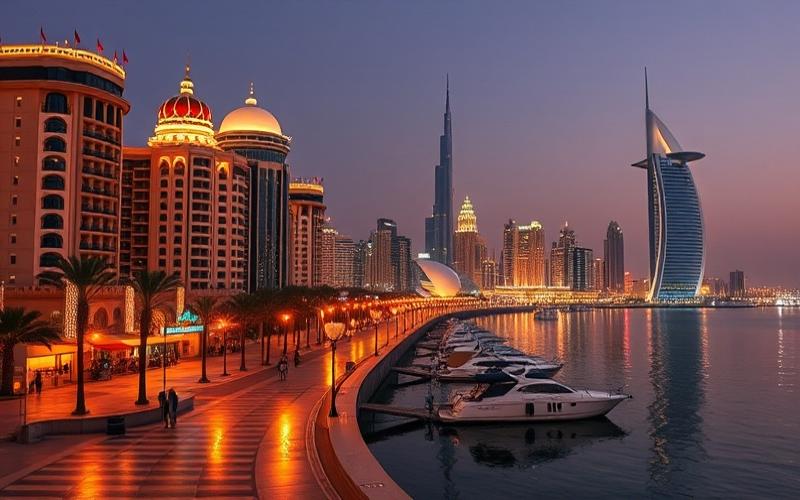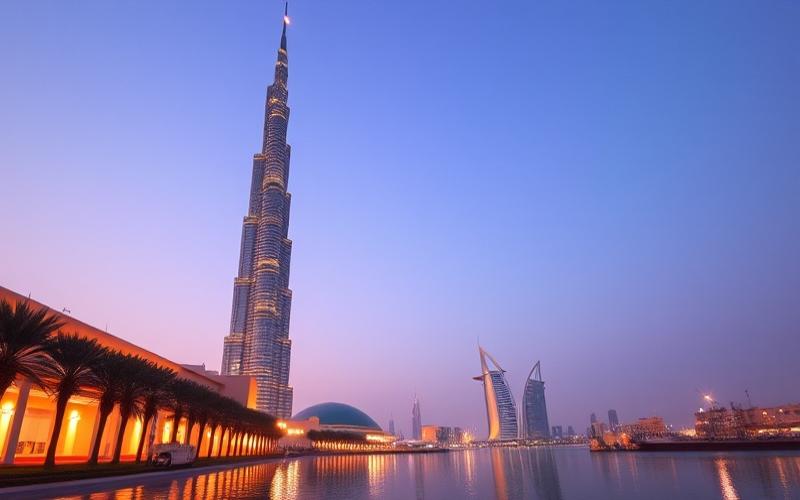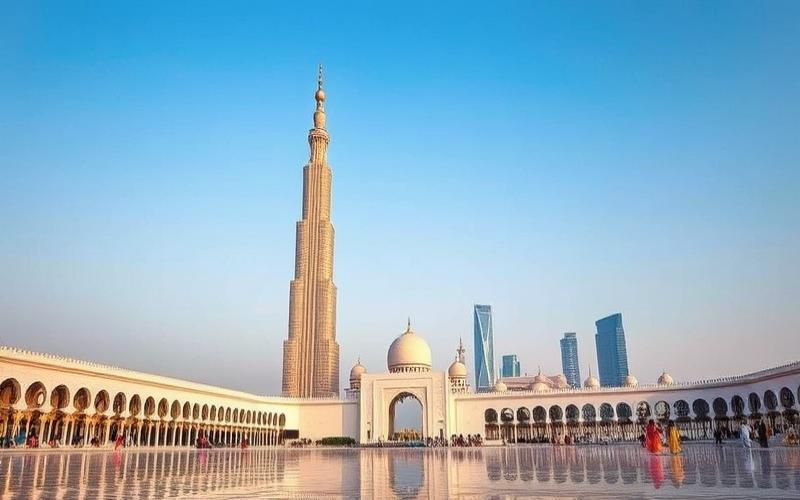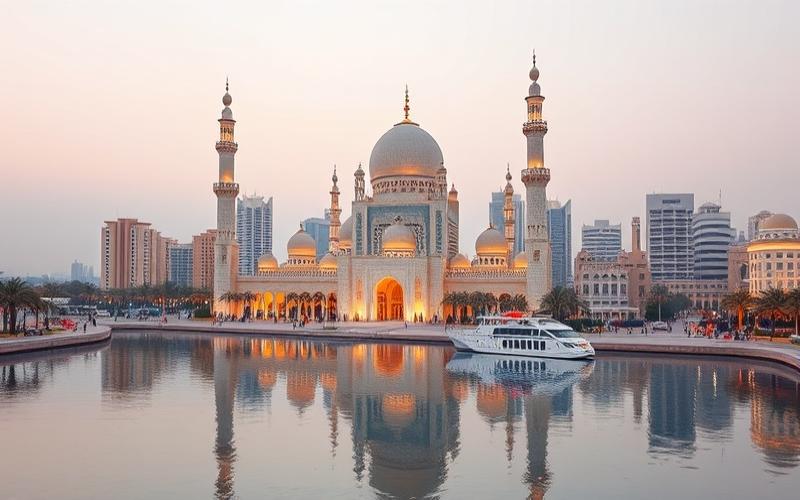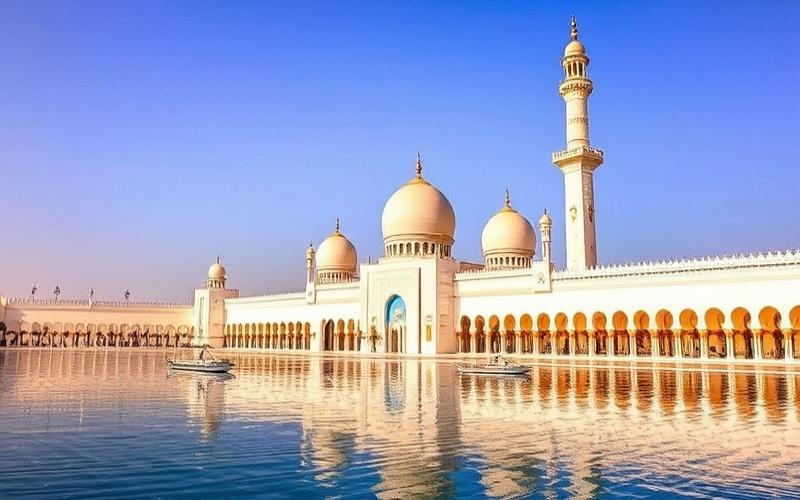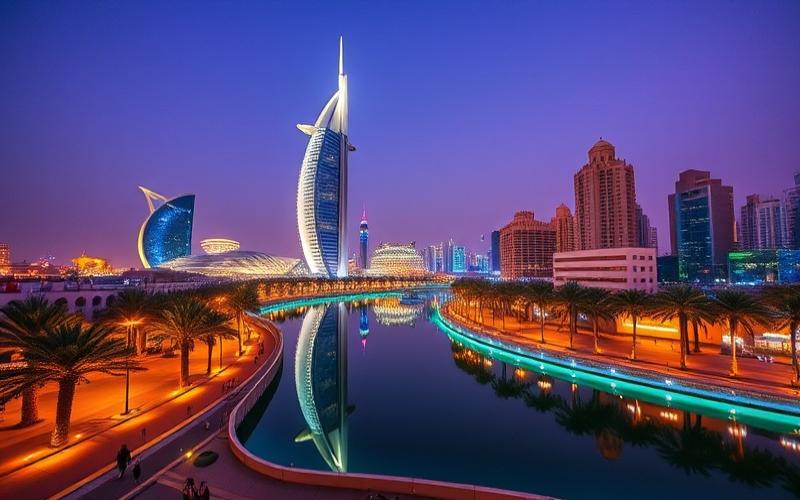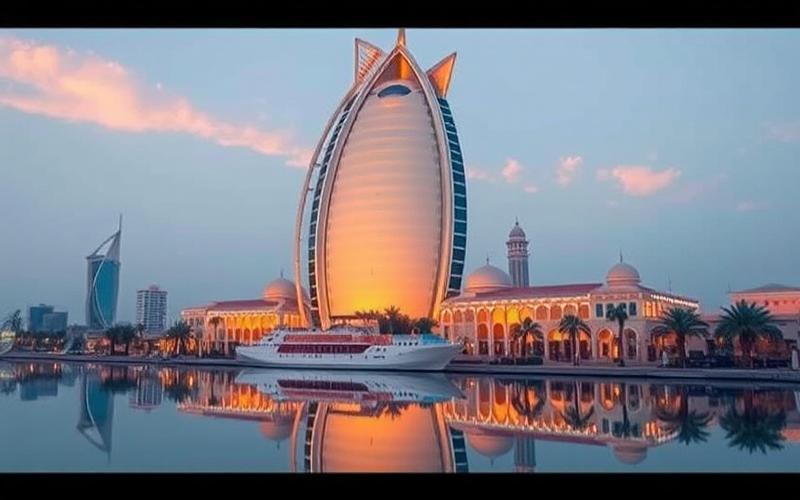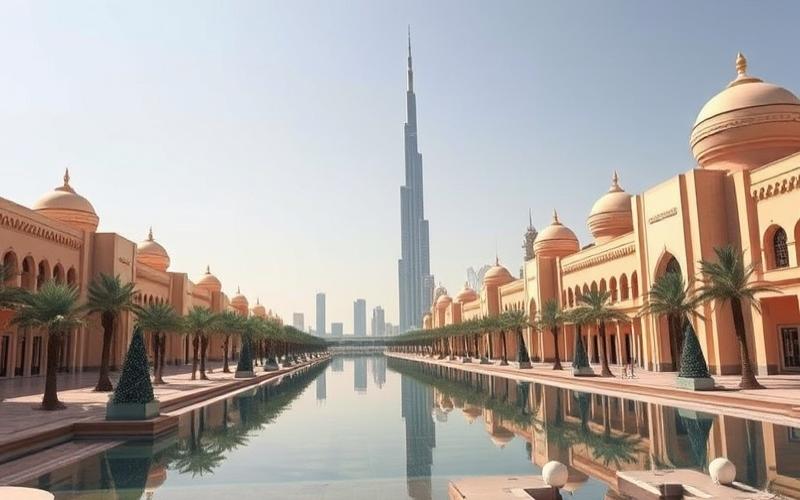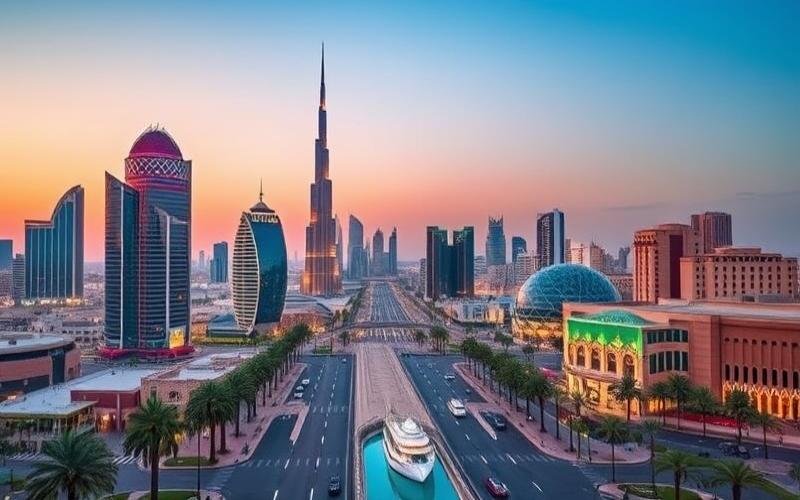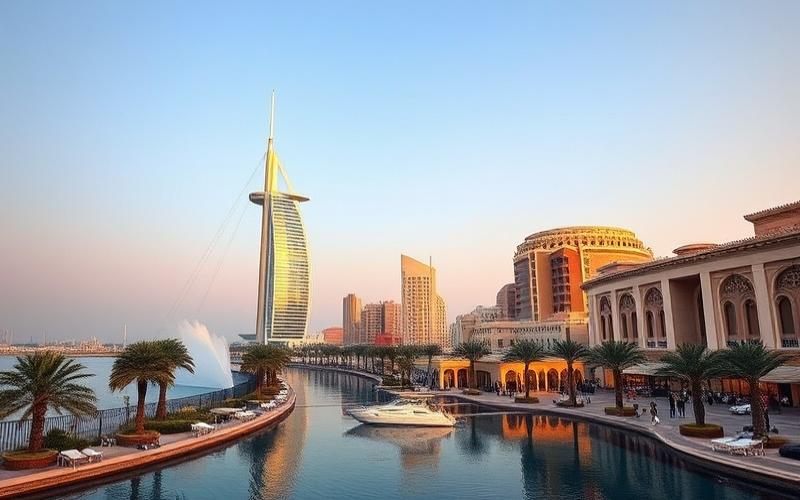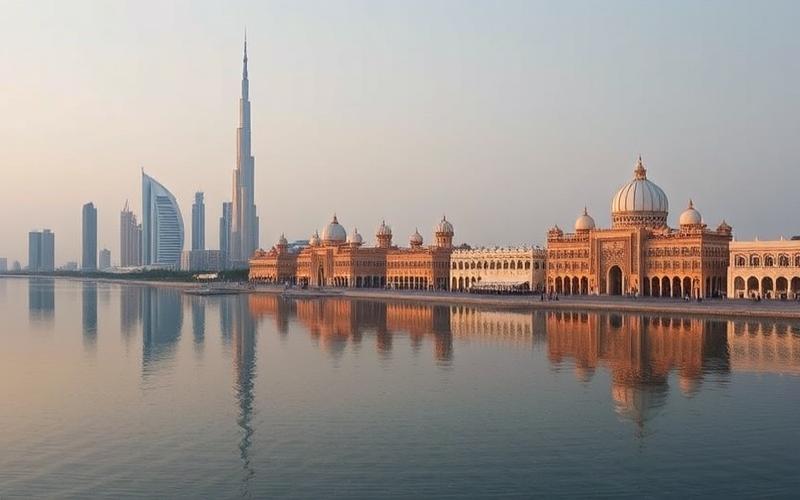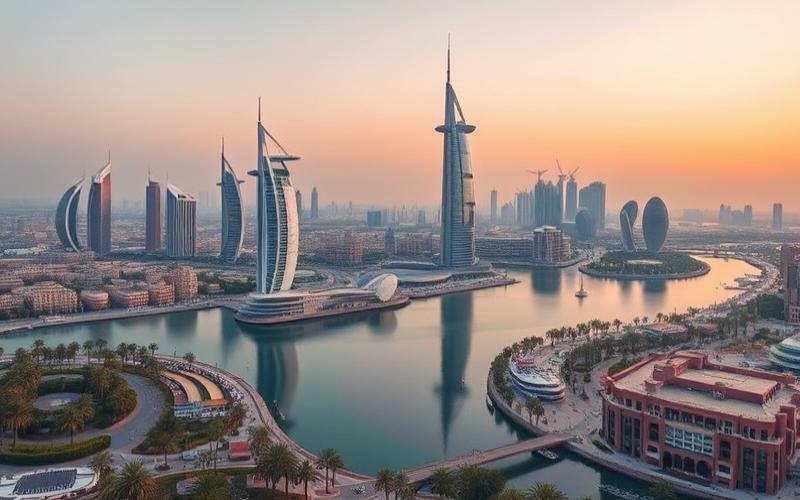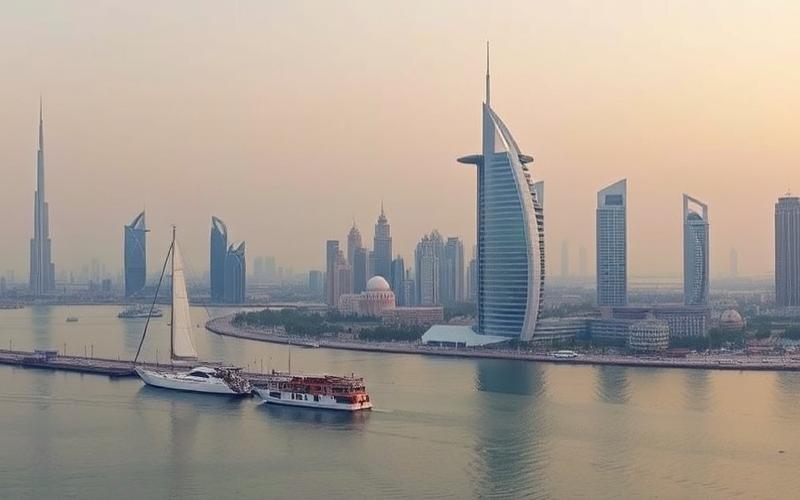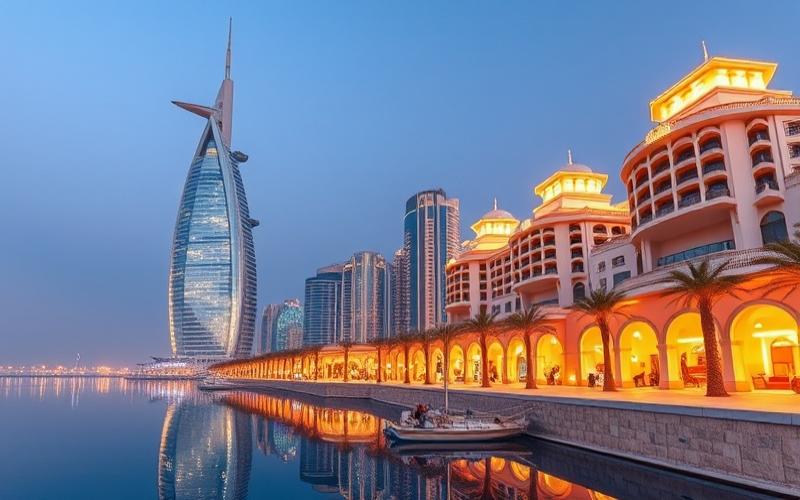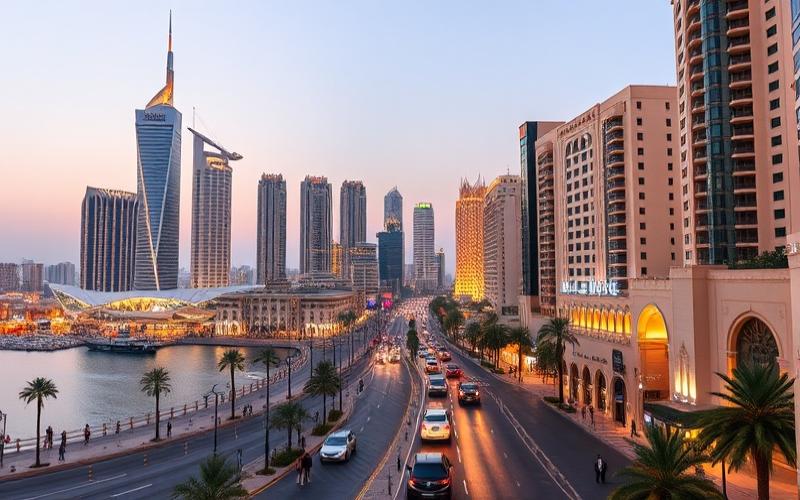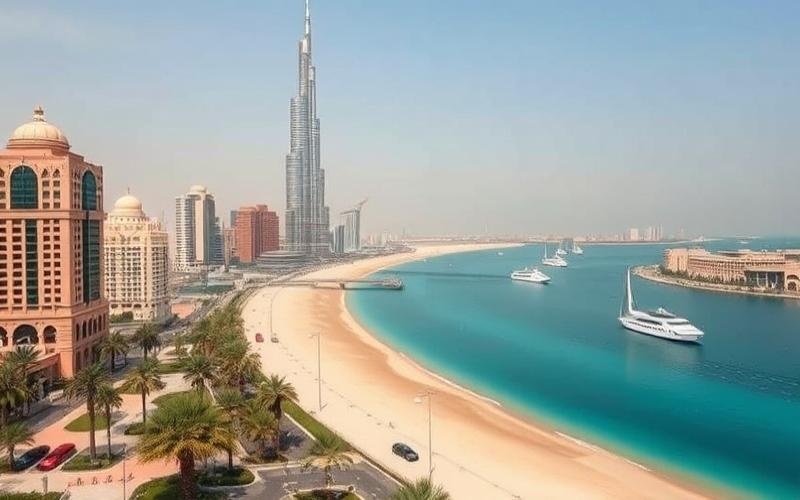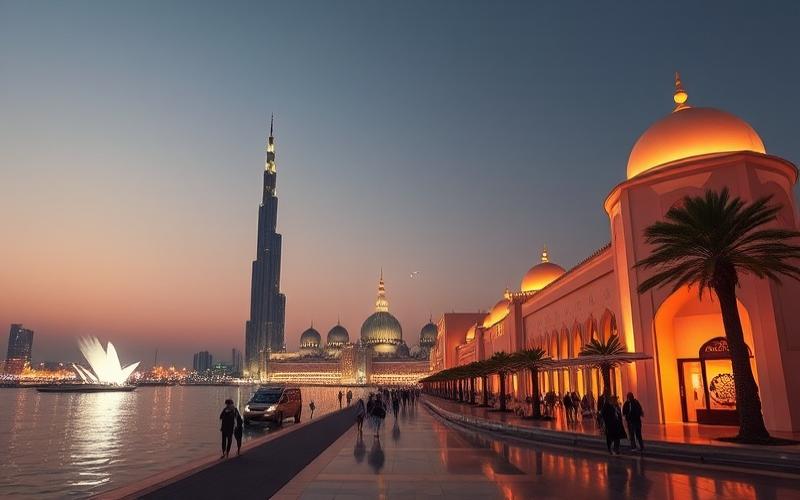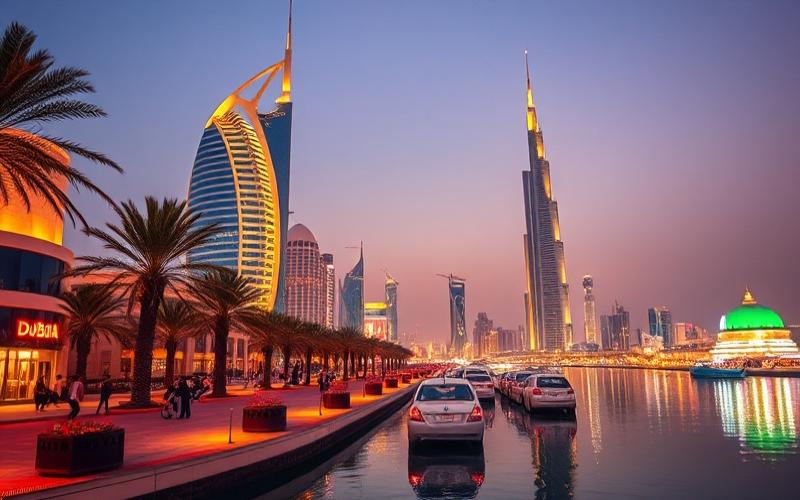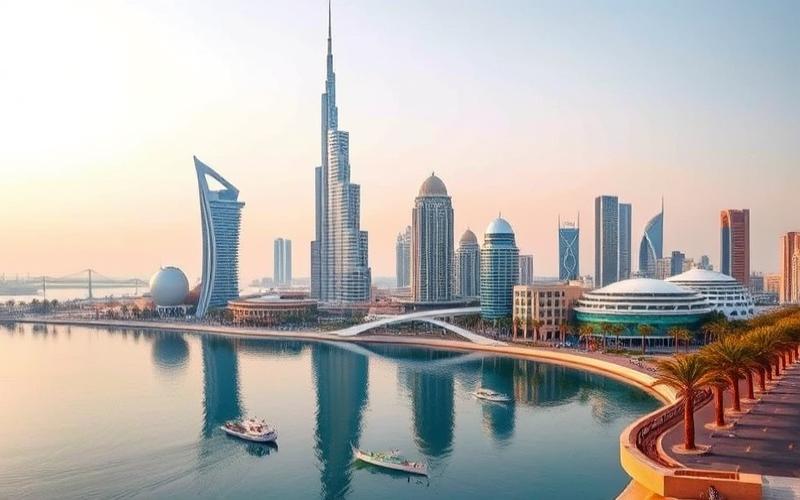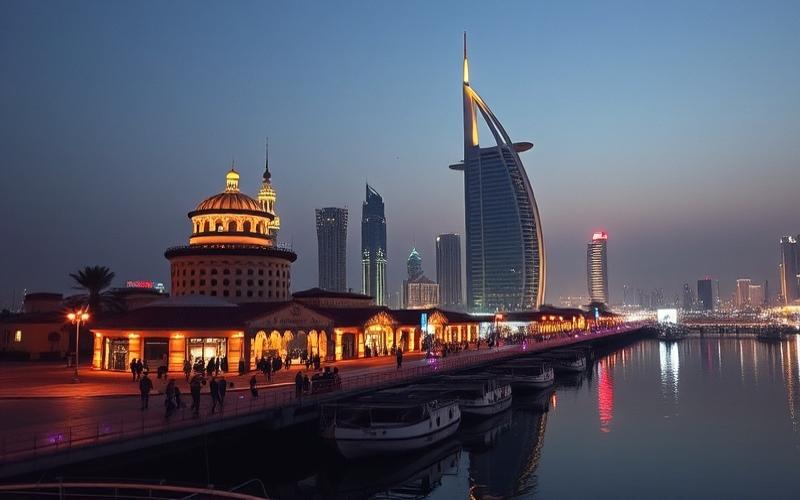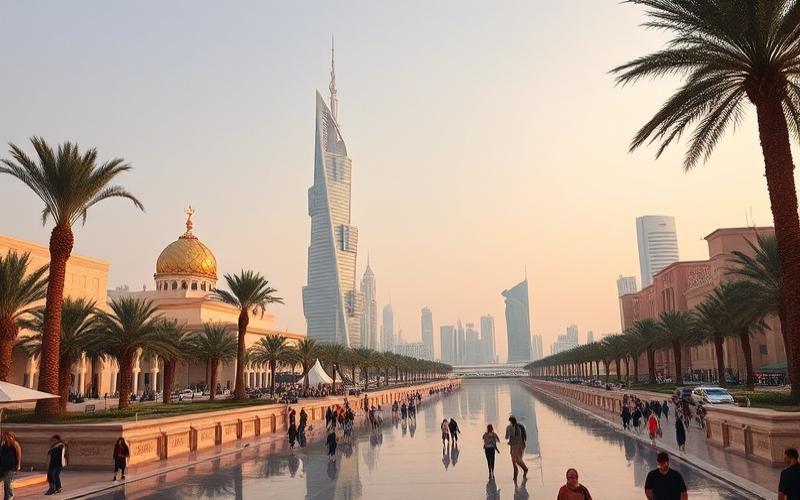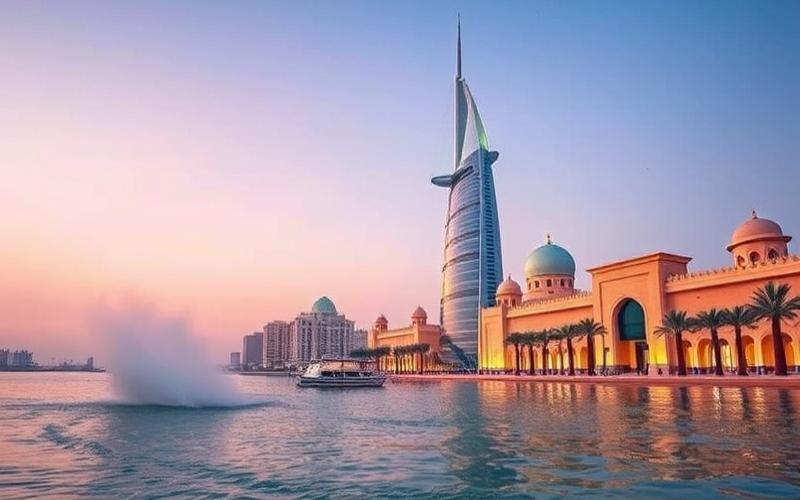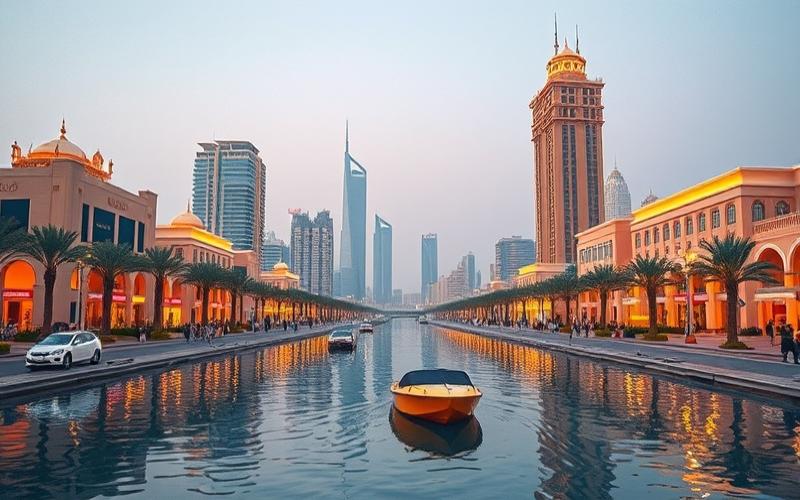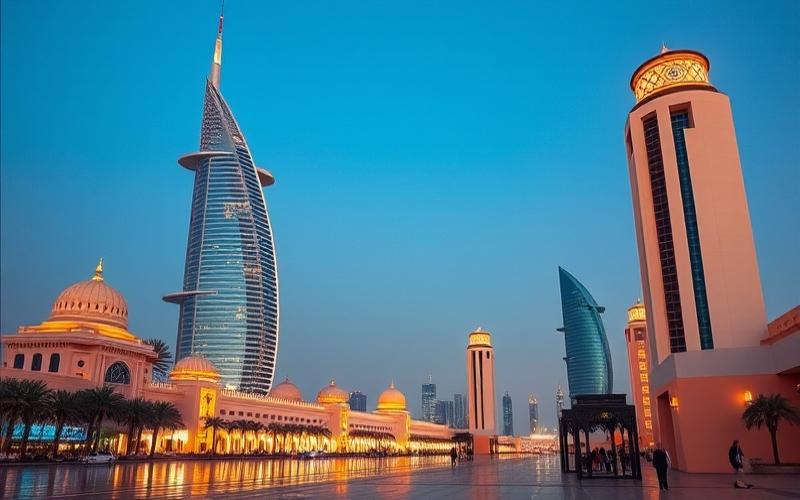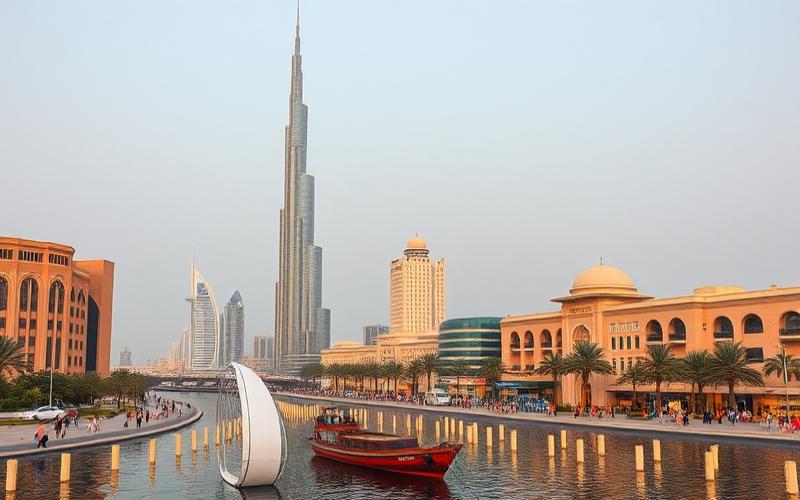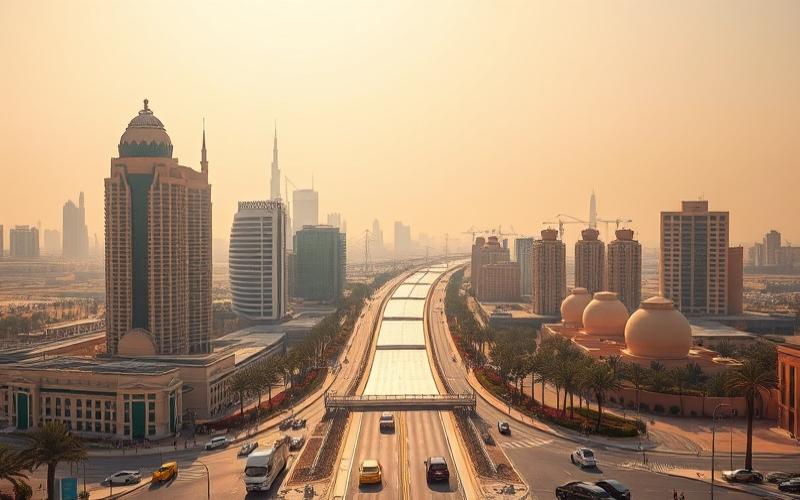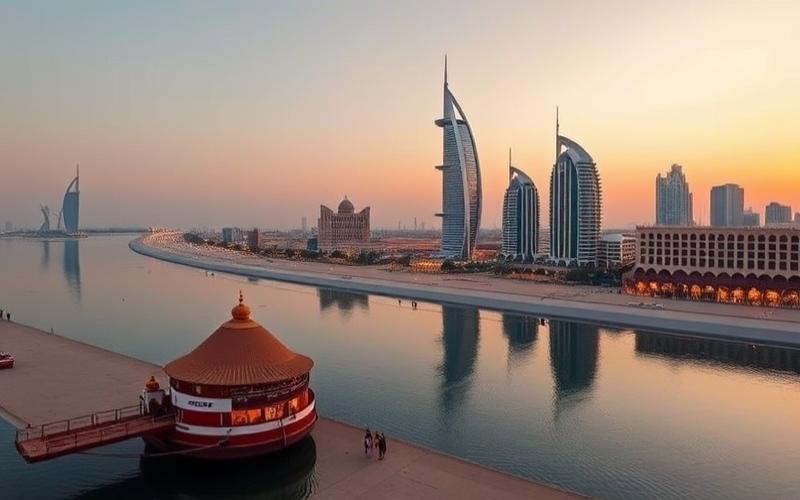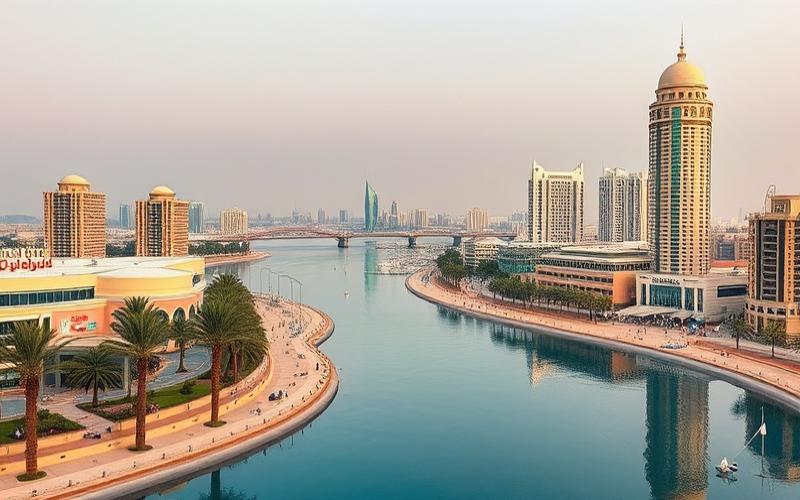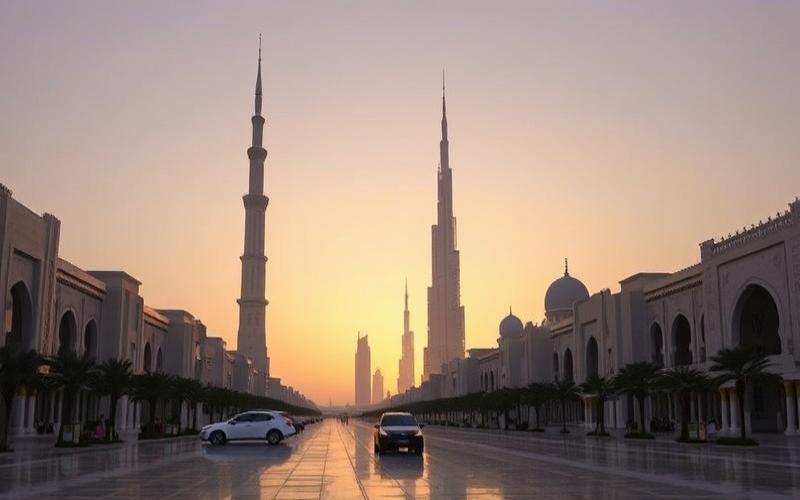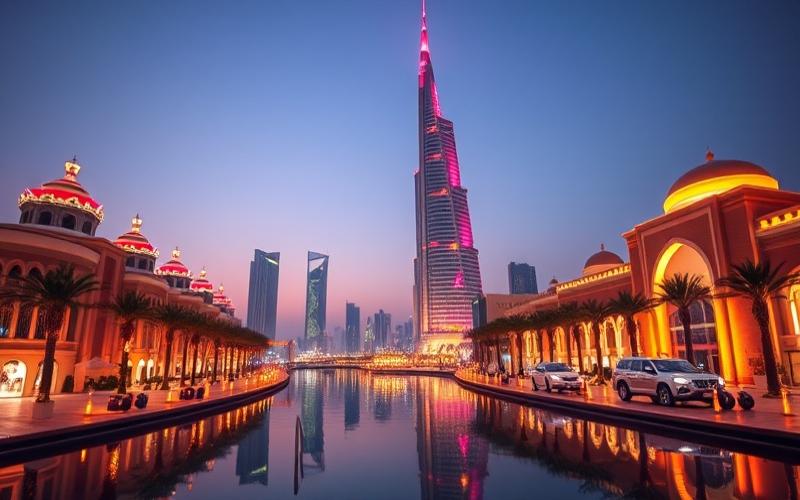
 Published on and written by Cyril Jarnias
Published on and written by Cyril Jarnias
Dubai, the jewel of the United Arab Emirates, has established itself as a premier tourist destination over recent decades. This spectacular transformation has profoundly impacted the local real estate market, creating a dynamic ecosystem where tourism and real estate mutually reinforce each other. In this article, we will explore how the influx of visitors is shaping the real estate landscape of this city of the future, offering unique opportunities for savvy investors.
Tourist Hotspots: Catalysts for Luxury Real Estate
Dubai boasts iconic tourist areas that attract millions of visitors each year. These sought-after neighborhoods have become true magnets for high-end real estate, transforming the city’s skyline and redefining luxury standards.
Palm Jumeirah, the artificial palm-shaped island, embodies Dubai’s extravagance. This exclusive neighborhood features prestigious properties, world-renowned hotels, and private beaches. Palm Jumeirah’s tourist appeal has driven real estate prices to record highs, with villas and apartments trading for several million dollars. Investors see opportunities for high rental yields, particularly due to demand for short-term rentals.
Dubai Marina, with its towering skyscrapers and vibrant waterfront, is another major attraction. This cosmopolitan area offers an appealing mix of luxury residences, trendy restaurants, and nautical activities. Proximity to the beach and the vibrant atmosphere make it a preferred choice for tourists, translating into strong rental demand and steadily increasing real estate prices.
Downtown Dubai, dominated by the iconic Burj Khalifa, is the city’s beating heart. This central district houses the Dubai Mall, one of the world’s largest shopping centers, along with the spectacular Dubai Fountain. The concentration of tourist attractions in this area has created a thriving real estate market, with luxury apartments offering stunning city views and attractive rental yields.
Good to Know:
Dubai’s popular tourist areas, such as Palm Jumeirah, Dubai Marina, and Downtown Dubai, are essential drivers of the luxury real estate market. These neighborhoods offer unique investment opportunities, combining prestige, high rental yields, and long-term appreciation potential.
The Snowball Effect: How Tourism Drives Up Prices
Dubai’s tourism boom has significantly impacted real estate prices, creating a growth dynamic that appears limitless. This upward trend is explained by several factors closely linked to the emirate’s thriving tourism industry.
Growing demand for short-term housing is one of the main drivers of this price increase. With steadily rising visitor numbers, demand for temporary accommodations has exploded. In July 2024, Dubai recorded an impressive 17,000 real estate transactions, representing a 59% increase compared to the previous year. This sustained demand has prompted many property owners to convert their assets into vacation rentals, thereby reducing the supply of long-term housing and exerting upward pressure on prices.
The appeal to international investors has also contributed to this price inflation. Dubai’s reputation as a luxury tourist destination has attracted capital from around the world, creating fierce competition for the most coveted properties. This influx of foreign investors has not only driven up prices but also stimulated the development of increasingly ambitious new real estate projects.
Continuous improvement of tourist infrastructure also plays a crucial role in property appreciation. Massive investments in transportation, attractions, and recreational facilities have significantly increased the appeal of certain neighborhoods. For example, the expansion of Dubai’s metro has directly impacted real estate prices in serviced areas, making them more accessible and thus more attractive to tourists and residents.
In 2024, Dubai’s real estate market experienced an impressive 15% growth, demonstrating the sector’s vigor driven by tourism. This trend is expected to continue, with ambitious projects like the Dubai Urban Master Plan 2040, which aims to convert 60% of residential land into green spaces, further increasing the city’s appeal to visitors and investors.
Good to Know:
Tourism’s impact on Dubai’s real estate prices is significant and multidimensional. Growing demand for short-term rentals, the influx of international investors, and continuous improvement of tourist infrastructure all contribute to sustained price increases, offering interesting appreciation opportunities for savvy investors.
The Rental Investment Boom: A Windfall for Property Owners
Dubai’s tourism boom has created fertile ground for rental investment, offering lucrative opportunities to property owners. This trend has particularly intensified in recent years, transforming the rental real estate landscape in the emirate.
Short-term rentals have become a true phenomenon in Dubai, driven by the growing popularity of platforms like Airbnb. Property owners quickly seized the opportunity to generate higher income by renting their properties to tourists rather than long-term tenants. This trend is particularly marked in popular tourist areas like Dubai Marina, Downtown Dubai, and Palm Jumeirah, where high occupancy rates and premium pricing enable attractive rental yields.
High-end vacation residences are also booming. Investors are increasingly turning to acquiring luxury properties specifically designed for the vacation rental market. These properties, often located in complexes offering hotel services, meet the growing demand from affluent tourists seeking exclusive experiences. Rental yields in this segment can reach impressive levels, sometimes exceeding 10% annually.
The emergence of new investment areas is another consequence of tourism’s impact on the rental market. Developing neighborhoods like Dubai South, which will host Expo 2025, or District 2020, are attracting increasing investor attention. These areas promise strong long-term property appreciation, coupled with significant rental potential linked to international events and tourist infrastructure development.
The success of rental investment in Dubai is supported by impressive figures. In the first half of 2024, the city welcomed 9.31 million visitors, stimulating demand for rental properties. This tourist influx, combined with a significant expatriate population (92% of the total population), creates a dynamic and resilient rental market.
Good to Know:
Rental investment in Dubai, driven by flourishing tourism, offers attractive yield opportunities. Short-term rentals, high-end vacation residences, and the emergence of new investment areas are all promising segments for investors looking to capitalize on the emirate’s tourism boom.
Future Outlook: A Bright Horizon for Tourism Real Estate
The future of Dubai’s tourism-related real estate market looks promising, driven by an ambitious vision and visionary development projects. The outlook for investors is particularly encouraging, with several key factors expected to support the sector’s continued growth.
The Dubai Urban Master Plan 2040 is central to this future vision. This ambitious plan aims to transform Dubai into a sustainable and connected metropolis, with particular emphasis on improving quality of life. The goal of converting 60% of residential land into green spaces should significantly increase the city’s appeal to tourists and residents, thereby supporting long-term real estate demand.
Continuous innovation in the tourism sector is another key factor expected to stimulate the real estate market. Dubai constantly pushes boundaries with bold projects like Ain Dubai, the world’s largest observation wheel, or the Museum of the Future. These world-class attractions not only attract more visitors but also create new real estate investment opportunities in surrounding areas.
Diversification of tourist offerings opens new perspectives for real estate. Dubai is striving to develop varied tourism segments, ranging from medical tourism to business tourism and ecotourism. This strategy should attract a more diverse clientele, creating demand for different property types and broadening investment opportunities.
Growth forecasts for the tourism sector are optimistic. Dubai aims to welcome 25 million visitors annually by 2025, which should support robust demand for tourism-related real estate. This expected growth, combined with Dubai’s reputation as a safe and stable destination, should continue to attract international investors.
Evolving traveler preferences post-pandemic also favor Dubai’s real estate market. The growing trend toward longer stays and more spacious living spaces aligns perfectly with Dubai’s luxury real estate offerings, enhancing the appeal of residential properties for vacation rentals.
Good to Know:
Future prospects for tourism real estate in Dubai are extremely positive. The Urban Master Plan 2040, continuous innovation in the tourism sector, diversification of offerings, and growth forecasts for visitor numbers create an environment conducive to long-term real estate investment.
Conclusion: Dubai, A Gold Rush for Tourism Real Estate Investment
Tourism’s impact on Dubai’s real estate market is undeniable and profound. The synergy between these two sectors has created a dynamic ecosystem offering unique opportunities for savvy investors. Popular tourist areas like Palm Jumeirah, Dubai Marina, and Downtown Dubai continue to attract international buyers’ attention, while the snowball effect on real estate prices demonstrates the market’s vigor.
The rise of rental investment, particularly in short-term rentals and high-end vacation residences, offers attractive yield prospects. Dubai’s long-term vision, embodied by ambitious projects like the Urban Master Plan 2040, promises to support continued growth in tourism-related real estate.
For investors seeking to diversify their portfolios and capitalize on Dubai’s dynamic market, the timing is ideal to explore opportunities offered by this constantly evolving city. With advantageous taxation, robust rental demand, and solid growth prospects, Dubai asserts itself as a prime destination for international real estate investment.
Disclaimer: The information provided on this website is for informational purposes only and does not constitute financial, legal, or professional advice. We encourage you to consult qualified experts before making any investment, real estate, or expatriation decisions. Although we strive to maintain up-to-date and accurate information, we do not guarantee the completeness, accuracy, or timeliness of the proposed content. As investment and expatriation involve risks, we disclaim any liability for potential losses or damages arising from the use of this site. Your use of this site confirms your acceptance of these terms and your understanding of the associated risks.

